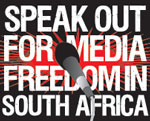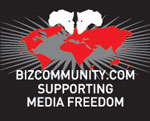
Top stories






More news


ESG & Sustainability
Redisa calls on govt to fix South Africa’s “broken” waste management system



























On 3 August, Sunday Times journalist Mzilikazi wa Afrika was arrested by a large posse of policemen in what appears to be intimidating tactics. He was arrested without a warrant for purportedly being in the possession of a forged letter announcing the resignation of the premier of Mpumalanaga province. He had recently authored a media report on 1 August in which he questioned the police chief's decision to lease a building to house the top brass of the police at a sum of R500 million for ten years.
Relations between the government and independent media groups have been strained of late particularly in respect of the controversial Protection of Information Bill which impedes access to information, and the proposed Media Appeals Tribunal to adjudicate perceived misleading reports by the media.
The Protection of Information Bill creates obstacles for civil society and media groups seeking to expose official malpractices by giving the government extensive powers to prevent the communication of information in the "national interest" on the pain of draconian punishments ranging from a minimum of three years imprisonment, extending up to 25 years.
National interest is defined through omnibus provisions, which include broad categories such as "all matters relating to the advancement of public good", the protection of trade secrets of state organs including "profits, losses or expenditures of any person" and the "pursuit of justice, democracy, economic growth, free trade, a stable monetary system and sound international relations".
As part the policy to bring about wider "media transformation, ownership and diversity," influential members of the ruling African National Congress are forwarding the idea of a statutory Media Appeals Tribunal to strengthen media accountability. Establishment of such a tribunal constitutes a step towards official media censorship especially as the South African media already have a self-regulation body in the form of a Press Ombudsman to oversee complaints of violations of the media code of conduct adopted by the Press Council.
The societies say that recent events have made them deeply anxious that the gains made during the anti-apartheid struggle, which led to the establishment of a non-racial democratic South Africa in 1994, are in danger of being eroded.
We call upon the South African Government to respect cherished constitutional values, which include freedom of the press and other media by:
Signatories:
